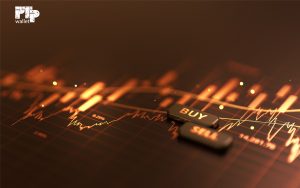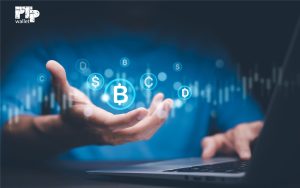Algorand is an institutional-grade blockchain infrastructure and the first to achieve decentralization, scalability, and security without compromises while being environmentally sustainable. Algorand powers the Future of Finance (FutureFi), converging traditional and decentralized models into an inclusive, frictionless, and secure unified system.
Algorand works efficiently and securely even in a permissionless environment, where, arbitrarily, many users are allowed to join the system at any time without any vetting or permission. Of course, Algorand works even better in a permissioned environment.
Algorand Virtual Machine (AVM) supports smart contracts with Turing-complete languages, larger program sizes, and more states, has many additional opcodes, and allows developers to use functions, loops, and recursion.
AVM runs on every node in the Algorand blockchain and contains a stacked engine that executes smart contracts and smart signatures, enabling developers to easily take advantage of powerful functionality by writing smart contracts in either Python or React, a simple javascript-like language.
Smart Contracts contain logic that, once deployed, can be remotely called from any node on the Algorand blockchain.
Algorand is removing impediments to mainstream adoption as the leading smart contract platform where sophisticated dApps are built on top of a fast, secure, scalable, and sustainable platform. Algorand’s smart contracts are a trusted, seamless solution with proven faster, scalable, cost-effective, and functionally advanced performance to enable sophisticated and complex applications.
Algorand’s Smart Contracts are trustless programs that execute on-chain, where users can be confident that the program was executed without error and the results were not tampered with. They are integrated into Algorand’s Layer-1, inheriting the same powerful speed, scale, finality, and security as the Algorand platform itself, and are error-free. Smart Contracts are written in Transaction Execution Approval Language (TEAL) and Python using the PyTeal library, a python language binding.
Algorand’s Smart Contracts are further strengthened by Algorand’s Virtual Machine (AVM), which interprets TEAL programs as a set of operation codes (opcodes) used to implement the logic of smart contracts and smart signatures. AVM is fueling the simple and more powerful smart contracts by providing a complete and advanced feature set that enables the seamless creation and execution of transactions within a single powerful Smart Contract. AVM is improving smart contract development and ensuring developers have the functionality to create powerful dApps while making blockchain application development more accessible to the wider developer community.
Who are the founders of Algorand (ALGO)?
Silvio Micali is the Founder of Algorand. Silvio’s research interests include cryptography, zero knowledge, pseudorandom generation, secure protocols, mechanism design, and blockchain. In 2017, Silvio founded Algorand, a fully decentralized, secure, and scalable blockchain that provides a common platform for building products and services for a borderless economy. At Algorand, Silvio oversees all research, including theory, security and crypto finance. Silvio is the recipient of the Turing Award (in computer science), the Gödel Prize (in theoretical computer science) and the RSA prize (in cryptography).
Matthew is the CFO of Algorand. Before being appointed to this role, Matthew was the Founder and President of Common Partners, an Executive Advisory firm for several well-known blockchains and FinTech firms. Commons holds an MBA from Harvard Business School. He earned the dual degrees of BA and BS from The University of Pennsylvania and The Wharton School, respectively, and is a Chartered Financial Analyst (CFA) charter holder.
What is Algorand (ALGO) used for?
Fast transaction
Algorand enables scalable, fast & secure execution that is not currently possible on legacy platforms. ASC1s operate at over 1,000TPS and are final in under 5 seconds on a platform to the blockchain.
Security
Algorand ensures reduced risk with instant settlement through trustless execution.
Low cost
They also ensure the low cost to execute transactions with the same fee as any other transaction on the Algorand blockchain at .001 Algos.
Develop
Blockchain developers use their smart contracts to execute transactions using basic lines of code stored on the blockchain when agreement conditions are met.
User Protections
Asset spam protection prevents unknown assets with tax, legal, or reputational risk from being sent to users without their explicit approval (users must opt-in to accept new assets).
How is Algorand (ALGO) unique?
Algorand evaluates its performance on 1,000 EC2 virtual machines, simulating up to 500,000 users. Experimental results show that Algorand confirms transactions in under a minute, achieves 125x Bitcoin’s throughput, and incurs almost no penalty for scaling to more users.
During a network partition in Algorand, the adversary can never convince two honest users to accept two different blocks for the same round. This is true even when the partition may last indefinitely, and nobody knows when it will be resolved. Algorand’s chain never forks, and users’ balances remain secure. At most, one block can be certified and written to the chain in a round. Accordingly, all transactions are final in Algorand. Once a block appears, users can rely on the transactions it contains immediately, and they can be confident that the block will forever be part of the chain, which means the assets they receive are safe.
In addition, although no blockchain can guarantee that blocks are written to the chain during a partition, Algorand can recover shortly after the partition is resolved and guarantees that new blocks will be generated at the same speed as before the partition. After a set of Algorand nodes sees no progress (roughly a little more time than it takes to agree on one block), the nodes enter partition recovery mode.
Besides continuing the consensus protocol, the nodes are periodically sending out recovery messages in this state. During a partition, these messages are not propagated properly. However, these messages are quickly propagated once the partition has healed, and when a required threshold of messages is accumulated, the states of the nodes are realigned, and the blockchain continues to move forward. This allows Algorand to recover almost instantly from partitions.
How many Algorand (ALGO) coins are in circulation?
Algorand has a circulating supply of 7,128,878,339 ALGO coins and a max. supply of 10,000,000,000 ALGO coins.
How is the Algorand network secured?
Security is necessary for a public blockchain in which all participants can safely transact, hold high-value assets, and build trusted enterprise applications. Algorand maintains security against attacks at both the consensus protocol and network levels while protecting the safety of individual user accounts.
Algorand uses a new Byzantine Agreement (BA) protocol to reach a consensus among users on the next set of transactions. To scale the consensus to many users, Algorand uses a novel mechanism based on Verifiable Random Functions that allows users to privately check whether they are selected to participate in the BA to agree on the next set of transactions and to include proof of their selection in their network messages.
Algorand’s consensus protocol is designed to prevent powerful adversaries from corrupting enough users to control block generation. Unlike other protocols, neither a few delegated users nor a fixed committee is responsible for propagating blocks. Instead, selecting users to participate in the certification of blocks is done randomly and secretly, without any communication among the users. An adversary does not know who will generate the next block (and thus should be targeted) until a selected user participates in the consensus protocol.
And when an adversary realizes that a user is selected, it is too late for them to benefit from an attack; the user has already sent their message and fulfilled their responsibility in the consensus protocol. Furthermore, in the next step and round of the protocol, another set of participants will again be privately and individually chosen. Participants change every step and round of block selection to protect the network against attackers.
In Algorand’s BA protocol, users do not keep any private state except for their private keys, which allows Algorand to replace participants immediately after they send a message. This mitigates targeted attacks on chosen participants after their identity is revealed. With this key, an online account can propose and confirm blocks. A participation key expires after a certain number of rounds, after which it is removed, and a new key must be generated to continue participating.
How do I buy Algorand (ALGO)?
The ALGO token can be used for a wide range of purposes, like staking and governance.
ALGO tokens can be easily purchased by following the following steps.
Open an account with the crypto trading platform.
* Transfer the specific amount of your fiat currency to your account.
* Wait for your deposit to be confirmed and buy ALGO through your trading account by swapping with BTC, ETH, or USDT pairs.
Which Cryptocurrency Wallet Supports Algorand (ALGO)?
The PTPWallet platform supports many cryptocurrencies simultaneously, such as Kardiachain. Because of its vast use case, it has grown to become one of the most used platforms, as it serves as an exchange and an engine to discover other cryptocurrencies. Users can easily use PTPWallet as their ALGO wallet because it offers a simple interactive interface, making it easy for people to navigate its system.



